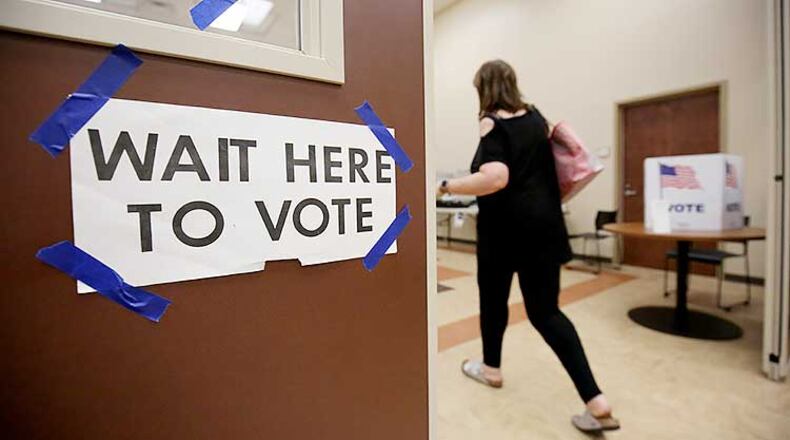For years, Republicans have warned about widespread voting-fraud allegedly swaying election outcomes. The claim has become a conservative obsession, with President Trump even alleging that up to five million illegal immigrants voted in the 2016 elections, just enough to account for his loss in the popular vote.
“People get in line that have absolutely no right to vote and they go around in circles,” he said last month. “Sometimes they go to their car, put on a different hat, put on a different shirt, come in and vote again. It’s really a disgrace what’s going on.”
Trump’s base believes such stories not because they have evidence to support them — despite years of desperate searching, zero evidence has ever been found — but because they need to believe them. They need to believe such stories because that false belief justifies a whole range of voter-suppression laws by which they attempt to discourage voting by minorities, students, young people and naturalized citizens who they fear would vote Democratic.
We’ve seen those “election integrity” laws pop up all over the country, including here in Georgia. In many cases, also including Georgia, federal courts have been forced to overturn those laws to ensure that the right to vote is protected. The worst such case may have come out of North Carolina, where a federal appeals court in 2013 threw out a new law because it targeted African-American voters “with almost surgical precision.”
In that case, white legislators in North Carolina had requested breakdowns by race of how and when people voted. The data showed black voters favored early voting; early voting was curtailed. It showed black voters took greater advantage of same-day registration; same-day registration was eliminated. As the appeals court noted, data also showed that white voters used absentee balloting more often than black voters, so legislators made sure to exempt absentee voting from a photo ID requirement.
Unlike spurious claims of voting fraud, these examples offer multiple, well-documented, legally confirmed cases of unconstitutional attempts to block U.S. citizens from participating in their own government; they are the modern-day, more sophisticated equivalents to voter-suppression tactics such as poll taxes and literacy tests.
This year, however, conservatives seem to have finally found the evidence of voting fraud that they’ve long sought, and they’ve found it in North Carolina of all places. A Republican political operative, hired by a Republican congressional candidate, has been accused of running a large-scale operation to submit fraudulent absentee ballots in favor of the GOP and to collect and destroy large numbers of absentee ballots in favor of the Democratic candidate.
In a race decided for the GOP by barely 900 votes, statisticians and election experts say it is quite plausible that fraud affected the outcome. The North Carolina elections board has voted unanimously and across party lines not to certify that race, and multiple felony charges are likely.
This did not happen by accident. The political operative in question has long been rumored to engage in such tactics, and may have been hired because of, not despite, those rumors. And when North Carolina Republicans consciously chose not to implement “election integrity” measures regarding absentee balloting, they left the door wide open to just this type of scandal.
And Trump, who before the election promised “maximum penalties” for voting fraud, hasn’t said a word about it.
About the Author
Keep Reading
The Latest
Featured


